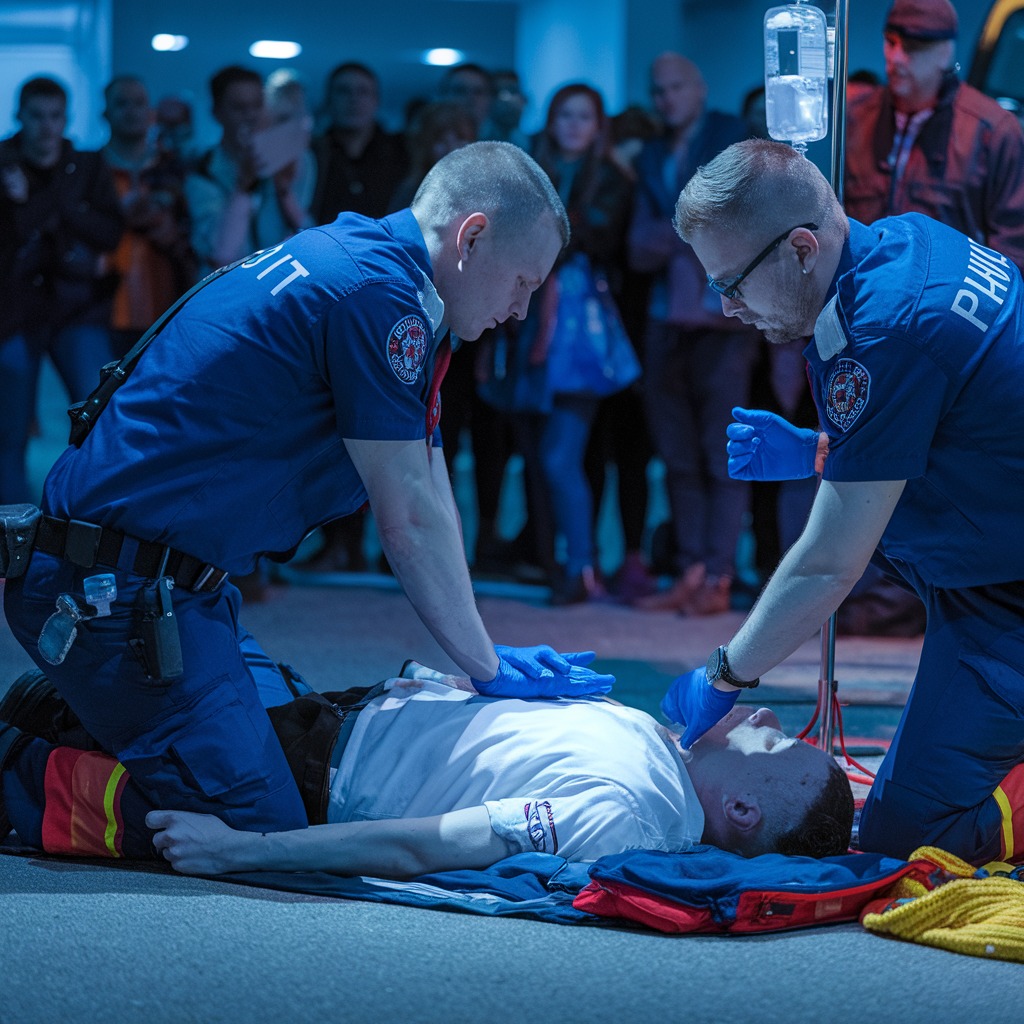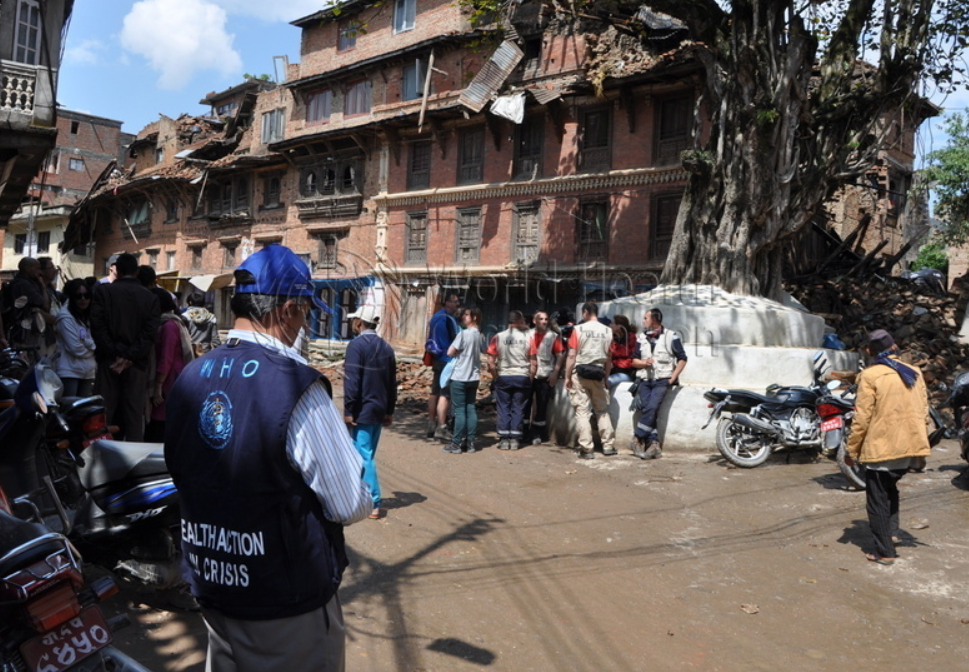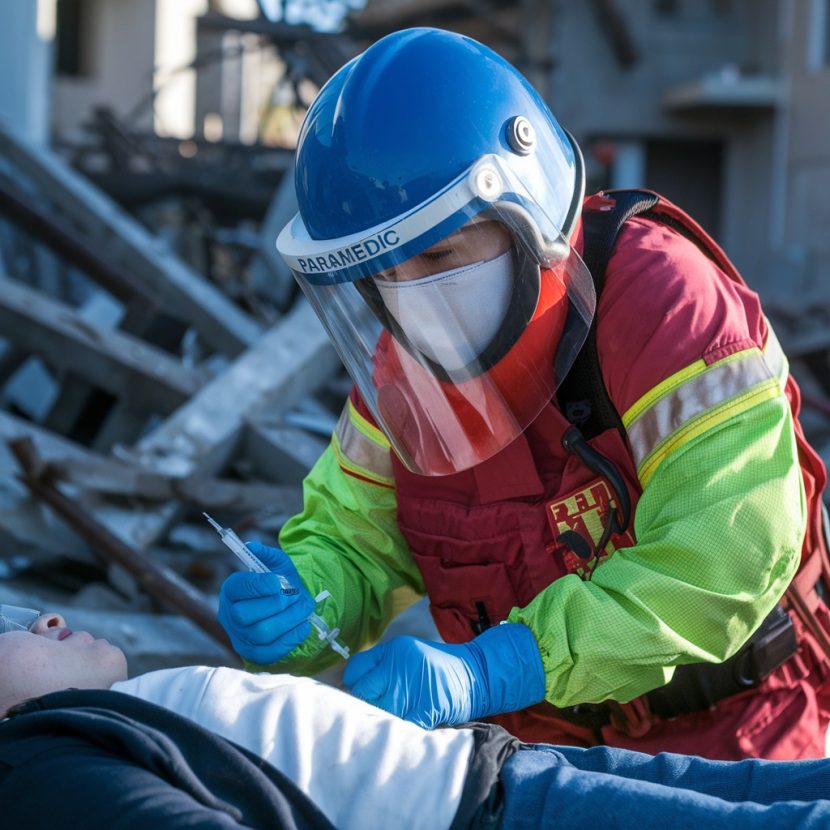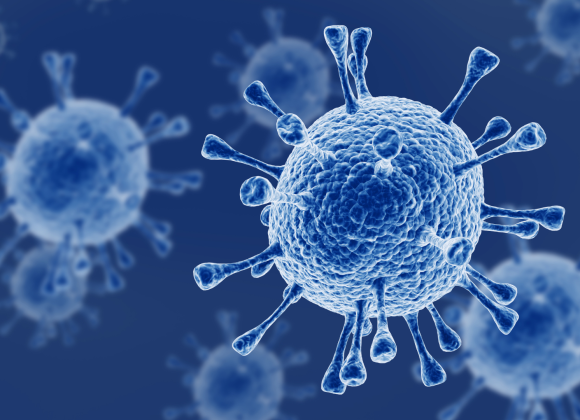Abstract
Paramedics are lifesavers in emergencies and disasters, serving as the backbone of emergency response. They provide urgent medical services when every second matters. Whether it’s an earthquake, flood, or accident, paramedics rush in to help. They treat injuries, give first aid, and transport patients safely. In the midst of chaos and fear, paramedics deliver not just medical care but also reassurance and comfort. They control bleeding, perform CPR, and assist with breathing difficulties. Their quick response plays a crucial role in reducing deaths and alleviating suffering. Emergency medical services (EMS) teams work in tough conditions. They manage trauma, handle critical cases, and ensure timely hospital transfers. “The Role of Paramedics in Emergencies and Disasters” is defined by their skills, bravery, and unwavering dedication to saving lives when people need them the most.
The Role of Paramedics in Emergency Care

Paramedics play a critical role in emergencies, serving as the first line of medical response when every second matters. Their prompt efforts are essential in evaluating, stabilizing, and getting patients ready for more medical care because they are the first medical personnel to arrive at the scene. In the event of a heart attack, serious trauma, or unexpected sickness, paramedics are prepared to respond quickly and provide life-saving measures like airway management, hemorrhage control, and cardiopulmonary resuscitation.
Challenges of Emergency Medical Services response to Nepal Earthquake of 2015


Seven months after the 2015 Nepal earthquake, health authorities struggled to provide emergency medical services as relief efforts slowed. In January 2016, the World Health Organization trained 12 Nepalese doctors to help in the worst-hit areas. These doctors monitored health services, tracked diseases, and investigated outbreaks.
Despite challenges, health facilities slowly improved. Pediatric care and tuberculosis treatment resumed. By mid-2016, most districts reported health data again, and medicine shortages reduced. This showed that with training and support, local doctors can ease the workload on health authorities and improve emergency response after disasters.
Why Paramedics Are Essential in Disasters
Paramedics are essential in disasters, playing a critical role in medical services, emergencies, and crisis response. They provide immediate care, stabilize patients, and ensure safe transport during life-threatening situations. Their quick actions save lives in chaotic environments. Synonyms for paramedics include first responders, emergency workers, and rescue teams. These professionals are vital for disaster response and effective emergency medical aid. In disasters, paramedics face challenges like limited resources, high stress, and dangerous conditions. Yet, they adapt quickly, triage patients, and manage large crowds needing help. Their ability to work under pressure makes them indispensable. Paramedics also collaborate with other emergency teams, ensuring coordinated efforts in crises.
Key Responsibility of Paramedics
Paramedics play a vital role in medical services, disasters, and emergencies. Their key responsibility is to provide urgent care. They assess patients quickly, stabilize conditions, and transport individuals safely. Paramedics work under pressure, handling crises with precision. They collaborate with emergency teams, ensuring effective treatment. In life-threatening situations, they offer critical support, saving lives efficiently. Synonyms for their role include first responders, emergency technicians, and crisis handlers. These professionals are essential for disaster response and emergency medical aid.
Challenges Faced by Paramedics During Disaster
Paramedics face tough challenges in disasters. They work under pressure, handling medical services, emergencies, and crises. Limited supplies, unpredictable situations, and risky environments test their skills. Large crowds make triage critical. First responders, emergency workers, and rescue teams adapt quickly to save lives. Their role is vital in disaster response and emergency care.
Conclusion
Paramedics are vital in medical services, disasters, and emergencies, providing urgent care and saving lives. They face challenges like limited resources, risky environments, and high-pressure situations while delivering critical support. From stabilizing patients to managing trauma, paramedics ensure effective disaster response and emergency medical aid. Their quick actions reduce suffering and bring hope during crises. Synonyms include first responders, emergency workers, and crisis handlers. Discover their key responsibilities and challenges in emergencies.




